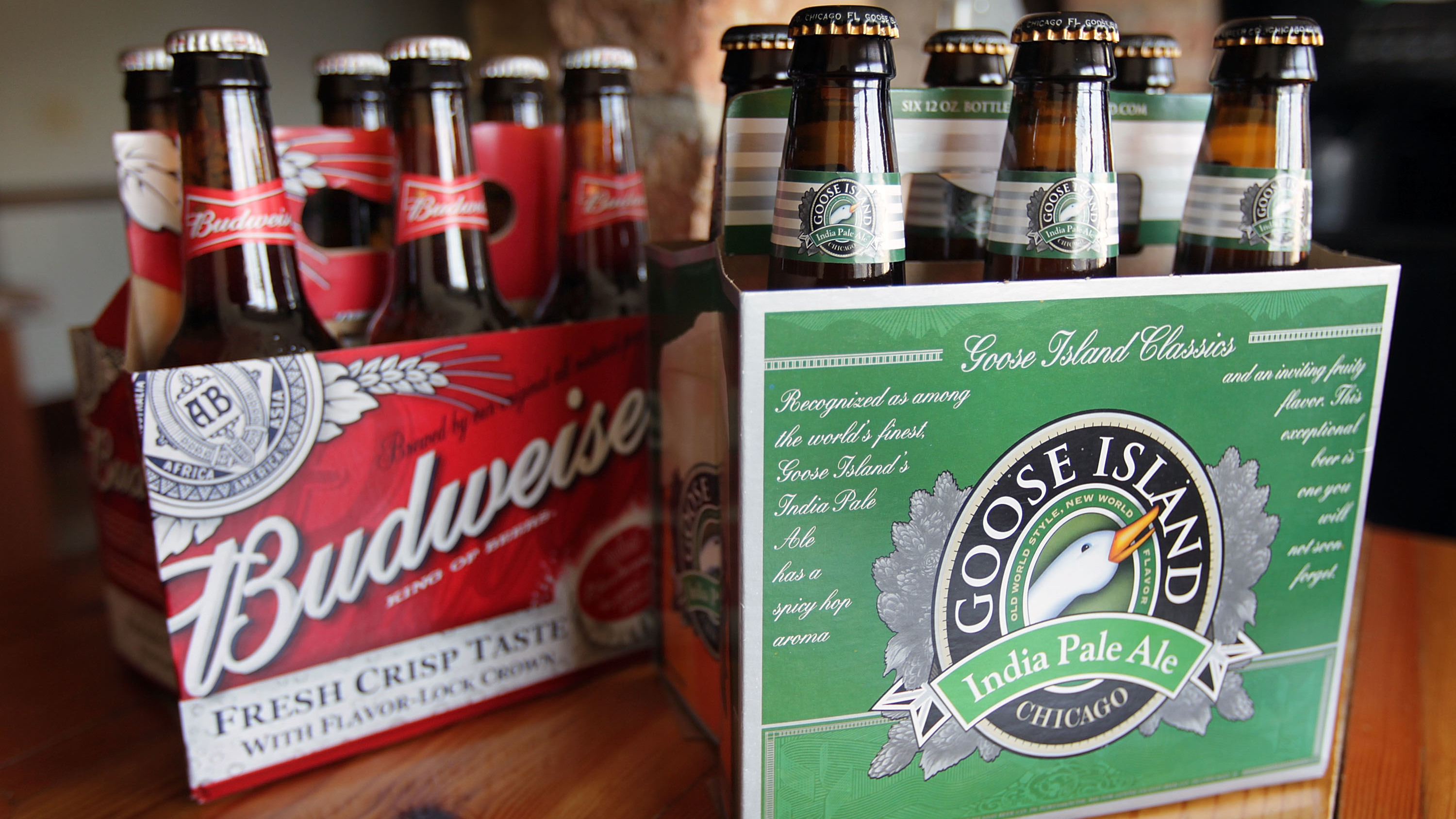Why Anheuser-Busch's New PR Initiative Might Actually Be Good For Beer Drinkers
In the dark, musty basement of craft beer nerdom, there exists a certain pride in hating Big Beer. "They're The Man; they're buying up all the craft breweries; they're limiting our beer choices." It's an immovable stance for a vocal minority of beer drinkers, and it's a flame that the industry group promoting small and independent breweries actively stokes. As Anheuser-Busch InBev in particular wants to maintain the street cred of its formerly independent craft breweries, it has to find a way to use its massive power (read: money) for the overall beer good.
This morning it announced steps in that direction through a new initiative called Elevate, which unfortunately sounds like an airline mileage program. It lays out four areas in which AB and its craft portfolio—called The High End—can make contributions: Beer, Environment, Industry, and Community. To those ends, AB and The High End breweries like Goose Island, Blue Point, Elysian, and Breckenridge, for example, laid out four plans:
- Move all their craft beer to "best by" date coding to let drinkers know when the beer is freshest
- Shift its acquired craft breweries to all solar and wind renewable energy by 2020 and cut water use by 20 percent
- Donate $2 million collectively to organizations of the craft breweries' choice
- Commit each craft brewery to an open-door beer quality and safety tutorials for smaller breweries.
But before you scream "Big Beer apologist!" and hop into my mentions on beer Twitter, let's take a critical look. As a former beer magazine editor and now as the staff writer here at The Takeout, it's my role to look out for the everyday drinker. That also means the overall industry is important to me, too, because the health of America's 5,300-plus breweries means more tasty beer for all of us.
Reasons the Anheuser-Busch initiative is good
I will first give props to AB and The High End's tangible solutions to some of the beer world's biggest criticisms.
"Now that these breweries have been bought out, their beer isn't as good." OK, here's a clear-to-the-consumer drink-by date to help you see when your beer will taste best. This isn't to say that some independent breweries don't also do this, but it's hardly a universal practice. Some use strange codes that essentially require a codex and almanac to decipher.
"Big Beer doesn't help the overall industry." There's a lot to unpack in this particular criticism, but it's admirable to see AB taking its biggest assets like quality assurance, technical knowledge, and safety standards, and opening their books and labs to small and independent breweries. And the renewable energy commitment is, I think, hard to argue with. Craft breweries like Sierra Nevada and New Belgium have been pioneers in this realm, too, and it's encouraging to see large beer makers, who have considerable environmental impact, doing their part.
Reasons for skepticism
The Elevate initiative, while ambitious, does not address the fundamental criticism levied against Big Beer, which is: Consolidation is bad for industries. In beer particularly, the last decade has seen massive consolidation of distributors (which goes largely unnoticed by average drinkers) and the reduction of small, family-owned distributorships in favor of AB- and MillerCoors-affiliated ones.
There's also the idea that as larger companies buy up smaller breweries, they're able to present "the illusion of choice" on taps or shelves, meaning the consumer sees 12 different beer brands, but they're all owned by the same overall company. Breweries under the same corporate umbrella can use their combined weight to negotiate deals on raw ingredients, too, that smaller players can't necessarily access.
This is a macroeconomic-level question and one that's not unique to beer. Consolidation is the trend in media, in airlines, in healthcare, in plenty of industries. If consumers aren't OK with it, they'll have to push back in tangible ways, because corporations are doing everything they can to smile for the cameras.
